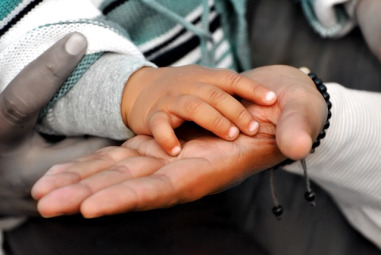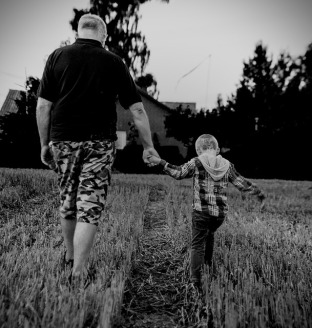Delighting In Your Child – Part 3 – Being Emotionally Available
Being emotionally available to our children is necessary, just being physically present is not enough and even very young children will spot the difference, as adults do. For example, imagine how different it feels to talk to your partner who is really ‘with’ you compared with when they are listening – while watching TV! As parents we can be doing all the ‘right’ things but may allow ourselves to become too busy to really ‘be with’ our children. Can parents do this all the time? Of course not, but if we can really be with our children more often than not, and at times when they really need us, that is good enough. A secure attachment doesn’t mean always getting it right, but it does mean repairing the relationship when necessary. A great practice is from your child’s earliest days, talking out loud about feelings (your child’s and your own) will begin to help your child to eventually label feelings and realize that they can be shared. As your child gets older, s/he will realize that intense feelings can be named (mad, sad, glad, and afraid) and discussed with another, thus ending a need to act them out.
Sometimes a child will let their parents know what they need in a direct way, for example raising their arms to be picked up; at other times they may be less direct, such as coming in close to their parent when they want a cuddle. However, if a child has learned that their parent is uncomfortable meeting some of their needs they may behave in a misleading or contradictory way, for example, appearing as if they want to play when they actually need comfort. It can be helpful to consider what lies behind our children’s approaches to us.
For example, asking for help with a task like putting on their socks may be more about seeking emotional support than actually requiring our help. Recognizing this helps parents to respond more effectively to their child’s needs.
Circle of Security also helps parents understand what they bring to their relationship with their child, and how subjective their perceptions of their child can be. Parent’s own upbringing influences the areas which they struggle with and reflecting on their responses is vital. Certain needs of their child can activate painful feelings for the parent. For example, a parent may feel abandoned when their child is moving away from them, and may therefore encourage their child to be overly reliant on them (usually unconsciously). The child may then act like they need comfort a lot of the time.
None of us get it right all the time, and (thankfully!) it is not necessary to do so, but if we are trying to recognize and meet our child’s needs, both for attachment and exploration, they are off to a great start.
So I think, from my own experience as a mom, and from countless conversations with other moms, that the thing we most need to learn is this concept of delight. I think grandparents do this much more easily than we do, because they aren’t carrying any of the pressure of how this child turns out! The idea of delight is simple, yet so complicated as well.
Our delight must be:
- Genuine
- Warm
- Caring
- Respecting the child as a person of worth
- Focused on the child’s way of being rather than way of doing
- Accepting of the child’s strengths and weaknesses
- Unconditional
- Seeking to understand
- Encouraging
- Empathetic
- Present
- Express enjoyment of the child’s world
- Trusting of the child to set their own direction
- Follows the child
- Believing the best in the child
- Patient
Can you think of a time in your life when you had the experience of being “delighted in” by someone that was significant to you? Most of us can picture that experience clearly right now. Maybe it was a teacher who showed you love and compassion, a grandmother who you would run to and bury your head into her chest, a coach who encouraged you, a parent who really loved to watch you play… These are the snapshots that I call to mind as reminders to me of how to delight in my children. These people weren’t extraordinary. They were ordinary people who took the time to make me feel valued. This speaks to the depth of my heart, encouraging me, comforting me. I don’t have to be amazing, I just have to be willing. I have to remember this as I parent my kids.
Be encouraged, you can do this. All you need to remember is this: At the heart of secure attachment is a child’s recognition that s/he has a parent who can be counted on to lovingly provide tenderness, comfort, firm guidance and protection during the inevitable difficulties of life. But more than that, is a parent who delights in their child for who they are. It’s that simple.








Leave a Reply
Want to join the discussion?Feel free to contribute!